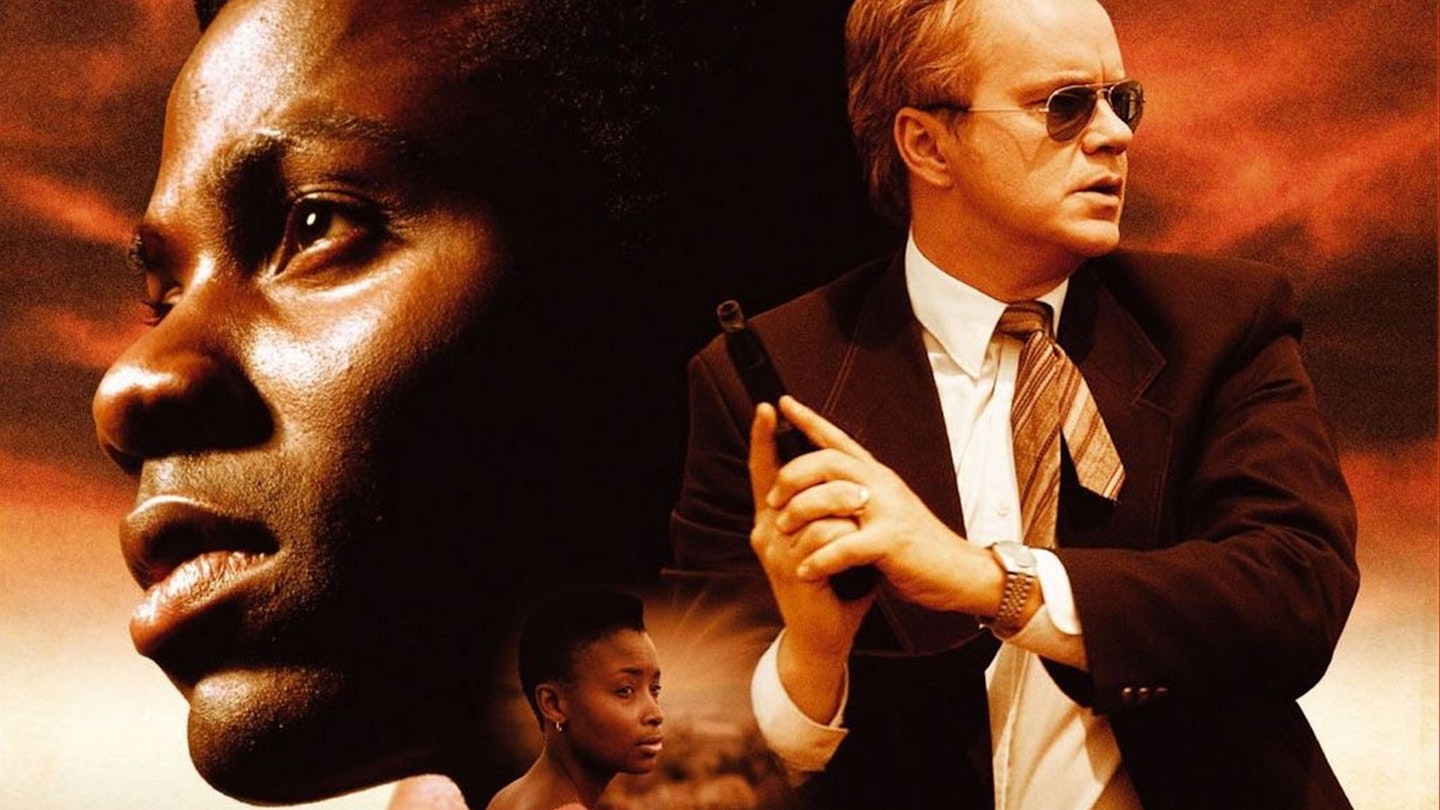The line between terrorist and freedom fighter is inherently blurry. Win your struggle, and it turns out that you were glorious warriors for a better tomorrow. Lose, and it looks like you were a morally compromised renegade after all. In 1980s South Africa, the line depended entirely on your point of view — and it’s an abrupt shift in viewpoint that gives this moving and powerful true story its impact.
Derek Luke’s (in an outstanding, Oscar-worthy performance that’s been largely overlooked) Patrick Chamusso is a pretty stand-up guy. He’s good with kids, a hard worker and a good father. But the colour of his skin brings him into conflict with another family man, Nic Vos (Tim Robbins, in an amalgam of several real people), a police chief investigating an act of sabotage who fixes on Patrick as his suspect. Interrogation, torture and intimidation soon follow, and our carefree, non-political hero soon morphs into ANC rebel and insurgent-in-training.
The good-man-driven-to-extremes story has been done before, but rarely with the sensitive handling of director Phillip Noyce, who adds nuance to a situation generally accepted as a clear-cut case of good and evil. Chamusso is no saint — the one secret part of his life proves his undoing, and he’s optimistic to the point of blindness. And while Robbins’ canny detective exploits every shred of weakness in his prisoner and does not hesitate to use any weapon at his disposal, the film walks a fine line in refusing to utterly demonise him. The truth can bring reconciliation, it seems, only ifwe acknowledge that there are two sides to every story, and while Vos’ methods are monstrous, his motives are made all too comprehensible in one dinner scene: he, like Chamusso, is trying to protect his family.
But the film’s real sympathies are never in doubt: Chamusso’s radicalisation and emergence as a fully trained but plainly terrified ANC operative is swiftly sketched but all too credible, largely avoiding cliché. While the supporting characters are never more than sketches, and the tight plot becomes far too loose as we approach the final act, this is still a thought-provoking look at a turbulent time.
